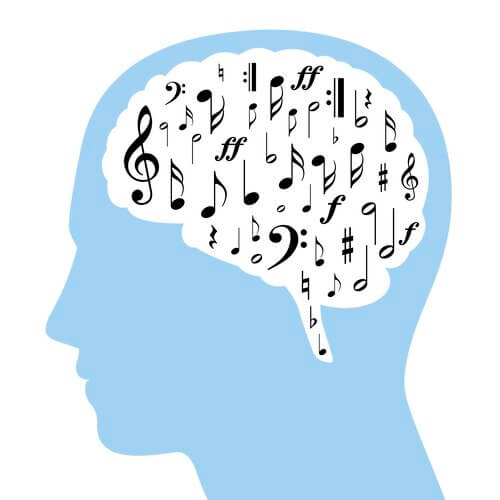Published on: 2 November 2021

We all know music has positive effects on people of all ages, but what sort of effect is it actually having on our brains? Turns out there are reasons behind why a simple song can motivate you to get out of bed in the morning or hit the gym, it can evoke a memory or relax you and it can change your mood within seconds. Here are just a few effects we have found that music has on the brain:

Improves your mood: We’ve all had a bad day that we need to belt out some Blink 182 to recover from. This is not just because you love the dulcet tones of your favourite singer, but science has now proven that listening to upbeat music can instantly improve your mood. Listening to and playing music reduces the stress hormone cortisol, in even the most stressed brains. Playing music is also a healthy outlet through which those struggling with depression or anxiety can express their feelings.
Memory: Have you ever had to memorise words for a speech or performance etc and found yourself putting the words to a song? It’s the easiest way to keep something in your head! Plus, you might secretly find you’re a bit of a songwriter yourself! Ever heard a song and a memory comes flooding back to you like it happened just yesterday? Music evokes strong emotions, whether they’re happy or sad, and emotions seal your memories. Therefore, hearing or playing a certain song will instantly remind you of the emotions you felt at that time, taking you right back to that memory.
Ability to learn: Learning a musical instrument has been proven to connect to literacy skills through common neural and cognitive mechanisms. Learning music from a young age has shown to improve a child’s reading skills, as well as aid in processing information faster and retaining information more easily.
Productivity and Creativity: Having music (especially that of your own choice) playing in the background as you work enhances performance on cognitive tasks, improves accuracy and inspires more creative ideas to be explored. Studies have found that hearing music that ranges between 50-80 beats per minute can stimulate creativity, whether you’re playing yourself or just hearing it. Did you know listening to music before bed calms the brain and makes it easier for you to switch off? Music before sleep puts our brains into an alpha state, relaxing the mind and entering a meditative state.
Long lasting improvements: Learning a musical instrument for even as little as 4 years as a child has been found to improve certain brain functions, even when subjects were tested 40 years later! This includes memory, creativity and helps to reduce age-related cognitive decline, such as dementia. Playing or learning a musical instrument for as little as 30 minutes a day can significantly aid in performing logical tasks, such as science and mathematics. Musical training boosts the blood flow in the left hemisphere of the brain, also reducing mental fatigue and helping you stay more vigilant.
Go forth, budding musicians, and get your brain pumping!
“I think music in itself is healing. It’s an explosive expression of humanity. It’s something we are all touched by. No matter what culture we’re from, everyone loves music.” ? Billy Joel